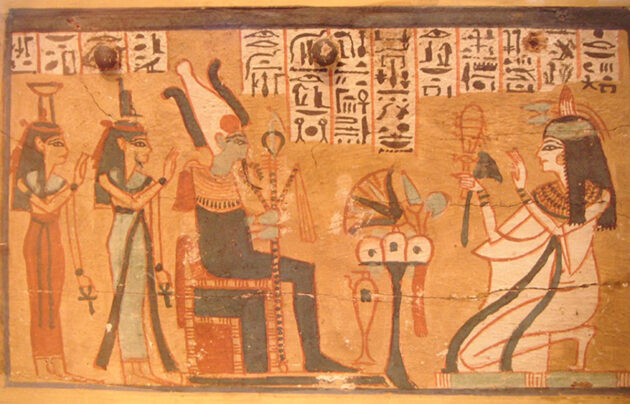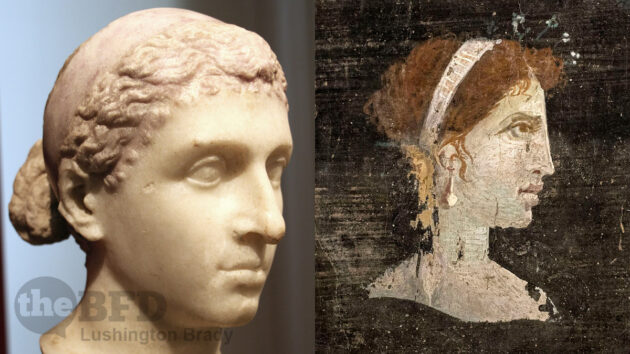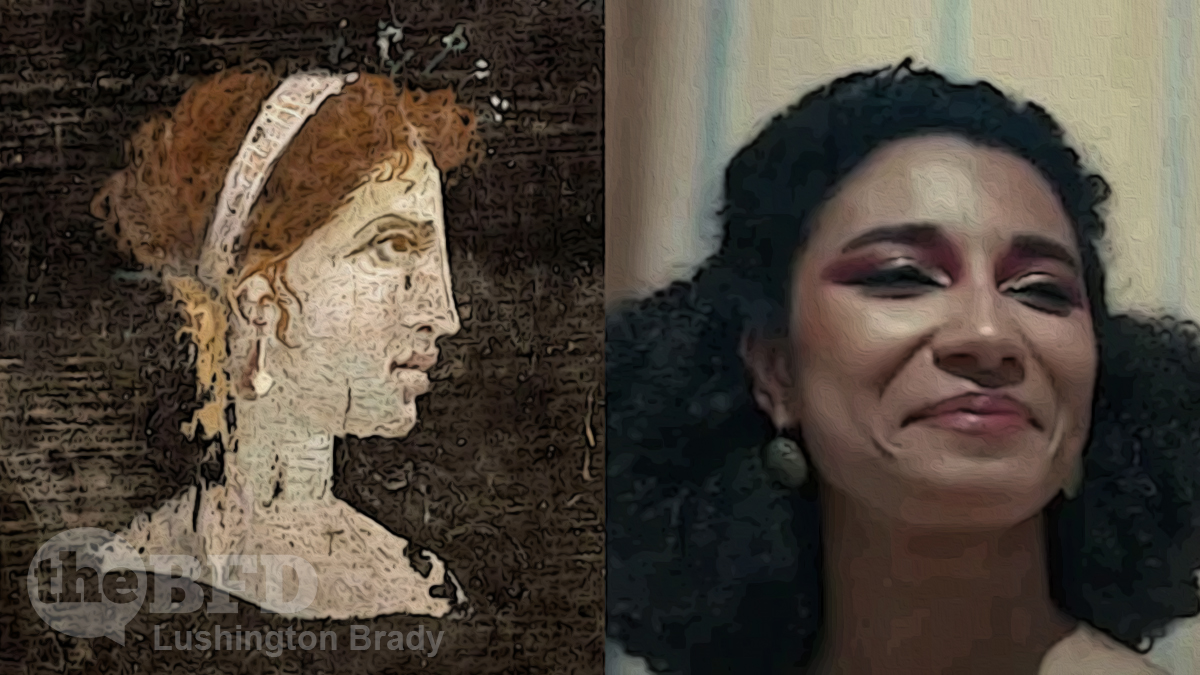Ancient Egypt has been a regular focus for those wanting to blackwash history.
In a way, perhaps, one can understand the determination of the “We wuz kangs n kweenz” mob to try and claim Egypt for their own. Egypt was a civilization which has fascinated outsiders for millennia. Its stupendous monuments were ancient even in ancient times (Julius Caesar lived closer to our own time than he did to the building of the Great Pyramids).
At the same time, the apparent dearth of other similarly monumental African civilisations — especially sub-Saharan, black, Africa — seems embarassingly notable by contrast.
No wonder contemporary black activists are so desperate to claim Egypt for their own. There’s only one problem: the Ancient Egyptians weren’t black.
No matter what Jada Pinkett-Smith wants us to believe.
Netflix has come under fire for its upcoming docudrama African Queens, which depicts Queen Cleopatra VII as a black woman, with critics accusing the streaming service of attempting to erase the Egyptian identity.
Adele James, a bi-racial British actor best known for her work in Casualty, has received backlash for her portrayal of Cleopatra, and the show’s executive producer, Jada Pinkett Smith, has also faced criticism for the casting choice.
Calling James “bi-racial” is an added bit of sophistry. Technically true it may be, but James is clearly, undeniably black. Keanu Reeves is multi-racial, with British, Chinese, Portuguese and Hawaiian ancestry. Yet, there was a “whitewashing” backlash against his casting as Siddartha in 1994’s Little Buddha.
And try reminding people that Charlize Theron is African, or that Elon Musk is the most successful African-American in history.
The controversy surrounding the portrayal of Cleopatra stems from a centuries-old debate about the ancient ruler’s racial profile. Some Egyptian cultural leaders have accused Netflix and Pinkett Smith of “falsifying facts” and attempting to rewrite history by depicting Cleopatra as black. Archaeologist and former Egyptian Minister of antiquities, Zahi Hawass, claimed that ”Cleopatra was Greek” and accused Netflix of spreading false information about the origin of Egyptian civilisation.
“Claimed”, nothing. It’s a fact.
While Cleopatra’s racial identity has been a topic of debate in the film industry for decades, with previous depictions portraying her as white, with actors like Elizabeth Taylor and Vivien Leigh playing the role on screen, scholars generally agree that Cleopatra was of mixed heritage, with her father being Macedonian-Greek and some Persian, and the ethnicity of her mother remaining unverified.
Macedonian-Greek: Caucasian. Persian: Caucasian. Cleopatra was almost certainly as pasty white as New Zealand’s most famous Caucasian Persian, Golriz Ghahraman.
Just like most of her countrymen. Even if Cleopatra’s mother was native Egyptian, she would not have been black, either. DNA studies have shown Ancient Egyptians had even less sub-Saharan African (i.e. “black”) genes than they do today (8% — most of that very, very recent). Ancient Egyptians were most closely related to the peoples of the Near East, especially the Levant.
In case you wondered, the US government classifies all such peoples as “white”.
Ancient Egyptian art is not always a reliable guide, given that verisimilitude was not their first priority. People in Ancient Egyptian are coloured everything from orange to white to green. But by the time of Cleopatra, a strong element of more naturalistic Hellenistic influence entered Eqyptian art.

A bust of Cleopatra depicts her with distinctive Mediterranean features, including a prominent and very un-negroid nose. At least one painting depicts her as pale white with red hair — not unlike a Macedonian kid I knew in primary school.

Pinkett Smith commented on the decision to cast a bi-racial actor as Cleopatra, stating, “We don’t often get to see or hear stories about black queens, and that was really important for me, as well as for my daughter.”
The Australian
That, I can understand. When local cinema was dominated by US and British imports in the 60s and 70s, the sudden appearance of genuinely Australian films was an exciting watershed.
What’s not excusable, though, is Pinkett-Smith plundering non-black African stories and blackwashing them.
I said earlier that the apparent dearth of other similarly monumental sub-Saharan, black African civilisations seems embarassingly notable. But that’s only because few people, especially Hollywood producers like Pinkett-Smith are really looking.
Tell the stories of Nubian Kush, for example. Or the Mali empire and its famed metropolis, Timbuktu — once an epicentre of literacy and learning. Or Abyssinia. If you want contemporary stories, tell of the rise of Kenya to a modern state, or the struggles of freed slaves to found a new nation in their African homeland.
(Not Carthage, though: they were Semitic Phoenicians.)
Blackwashing white people like Cleopatra is lazy, and only serves to underline the false narratives that black Africans don’t have stories of their own worth telling.

